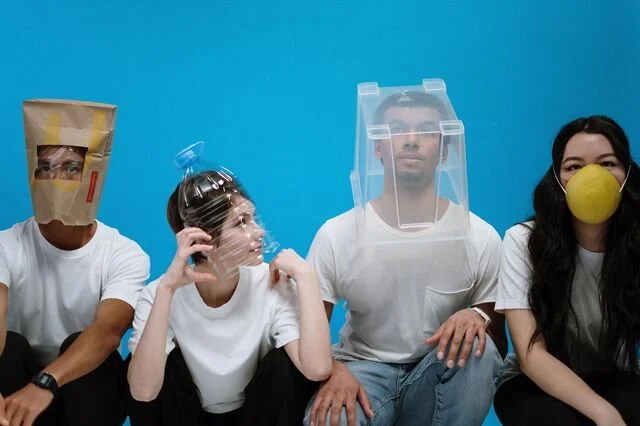In January I received my first dose of the COVID vaccine.
At that time, my state had just launched a portal to make an appointment. I went on the portal several times, but there were never any appointments available. And then, one day, I found a place about 30 minutes away that had dozens of available appointments, so I signed up. Three weeks ago, I received my second dose of the vaccine.
I share this because I was surprised by my response to getting an appointment and getting my first vaccine dose. I was excited, a bit giddy. I did not realize how much I wanted this vaccine to be a reality and be in my arm until I had an appointment to make it happen. I began to wonder about the origin of my excitement, which led me to think of what my life has been like for the last year.
I realized that nearly every part of my life was in a coping mode.
With every trip to work or to the gas station or to the grocery store, there was the task at hand AND wondering about the odds of catching the virus at any of these places. Because of these wonderings, I chose not to do some of these things; other activities, like visiting friends or going out to eat, were completely off limits and not even considered. There was a time when I felt my life getting smaller. Over time, I didn’t feel it the restriction; it was just the way things were.
It was just the way things were…until, with the vaccine, there was the possibility that my life didn’t have to be this way. The excitement I felt came from a sense of possibility coming to life in me; activities that had fallen off the radar could now happen again. And I realize that I am not the only one who feels this way. All over social media, people posted pictures of their shot verification cards; some places had frames that you could hold up like a picture. Everyone was smiling. Many people reported excitement, even tears.
Francine Shapiro, the founder of Eye Movement Desensitization Response (EMDR) describes two types of traumas. “Big T” traumas are those that have a profound effect on a person. These include war, physical or sexual abuse, disasters, and serious accidents. “Little t” traumas “are those experiences that give one a lesser sense of self-confidence and assault one’s sense of self-efficacy. Like a perceptual filter, they cause one to develop narrow and limiting views of oneself and the world, keep one from living to one’s full potential and causing suffering” (Laurel Parnell, A Therapist Guide to EMDR: Tools and Techniques for Successful Treatment).
I wonder if the emotions expressed in response to the vaccine reflect ways we have experienced the pandemic as trauma.
“Big T” trauma? “Little t” trauma? Somewhere along the spectrum? Where you fall on the spectrum probably depends on your life situation. I think of all the people who went to work every day—from health care workers to grocery store clerks—with the real possibility that today would be the day they were exposed. All of the meaningful family gatherings that did not happen because it was a risk. Having a loved one in the nursing home and hearing news about the spread of the virus through these facilities. And it has gone on now for more than a year.
Of course, everyone who has gone through the pandemic will not need trauma treatment. But seeing some of the things that have happened in your life from the perspective of trauma will open you up as you experience the possibilities that come with rising vaccinations and lowering case numbers. Traumatic events can lead you to develop erroneous beliefs about yourself and the world. Those erroneous beliefs can lead you to act in ways that make life limited, anxious, or fearful.
A simple way to begin this opening up is to be mindful of how you are ordering your life now and to consider how some of what you do now is shaped by the trauma of COVID. Perhaps there are ways that you can change the COVID routine that has become what many call the “new normal.” If you have given up reading or never did much reading, pick up a book or a journal. If you have given up watching TV or have never watched TV, find a show to watch. Do these activities, not as a distraction, but as a way to experience something new, or something you haven’t experienced in a long time.
As you receive the protection that the vaccination offers, begin to make plans. Perhaps you can make a reservation at a favorite restaurant or look at concerts that have been scheduled in the weeks and months ahead. In anticipation of the event, prepare a meal that has menu similar to the restaurant, or listen to a play list of the artist you hope to see.
I am not suggesting that you throw caution to the wind and act like everything is back to the way it was. There are still precautions to take. There will be times for many of you to mourn the loss of a friend or loved one. There will be times to grieve a special event that you could not attend. But you do not have to let the trauma of COVID restrict your thoughts, your feelings, and your living.
My trauma treatment page has more information about how I can help develop a new relationship with the experiences of your trauma.



